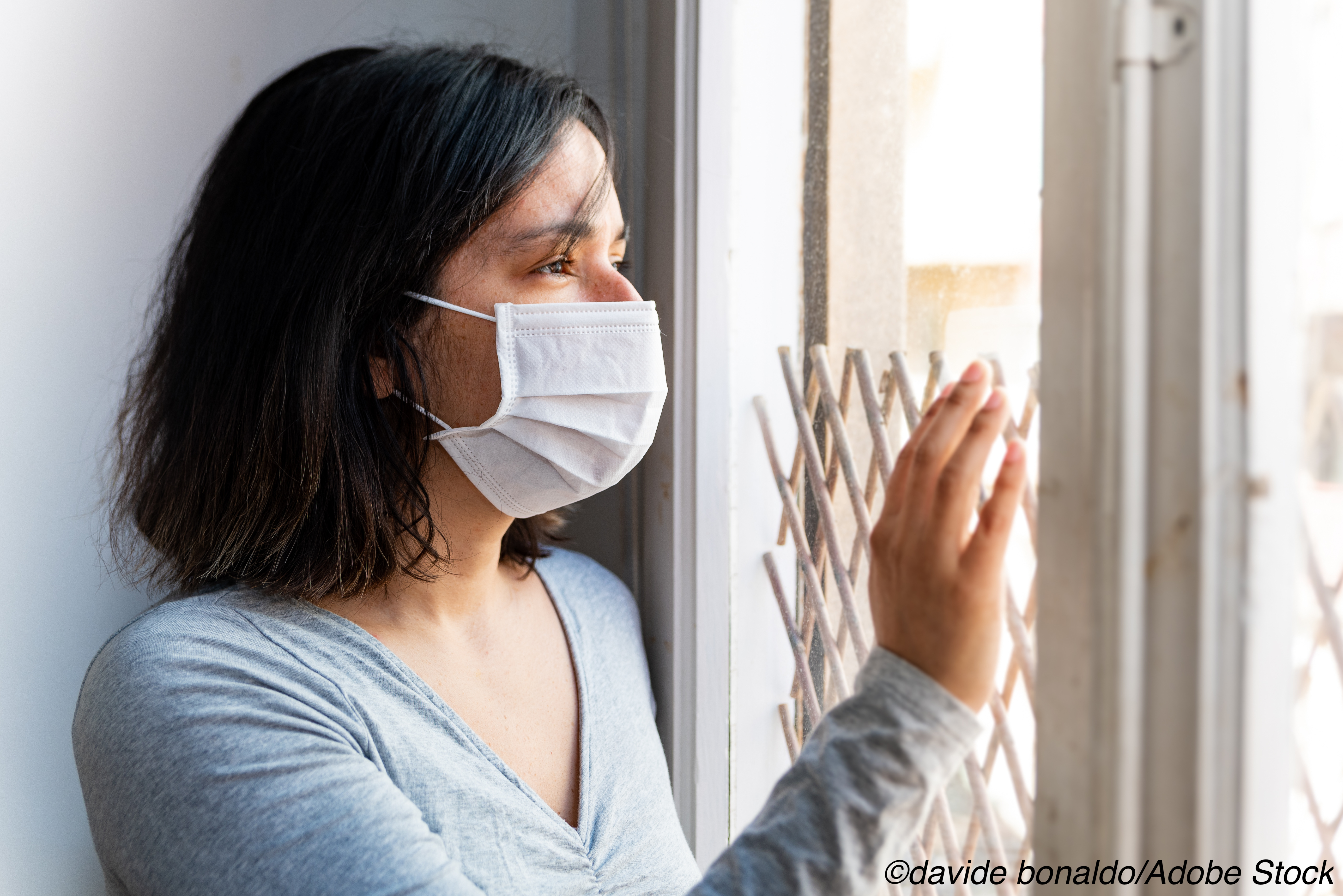 The Covid-19 pandemic is tied to a high burden of depression symptoms in the U.S., which is falling disproportionately on people already at increased risk, survey data show.
The Covid-19 pandemic is tied to a high burden of depression symptoms in the U.S., which is falling disproportionately on people already at increased risk, survey data show.
The findings “suggest that prevalence of depression symptoms in the U.S. was more than 3-fold higher during Covid-19 compared with before the Covid-19 pandemic,” wrote Sandro Galea, MD, DrPH, of Boston University, and coauthors in JAMA Network Open.
“Individuals with lower social resources, lower economic resources, and greater exposure to stressors (e.g., job loss) reported a greater burden of depression symptoms. Post–Covid-19 plans should account for the probable increase in mental illness to come, particularly among at-risk populations,” they noted.
“During Covid-19, most U.S. residents (52.5%, 95% CI 49.1%-55.8%) had symptoms of mild depression or greater; before Covid-19, 24.7% (95% CI 22.9%-26.6%) of U.S. residents had symptoms of mild depression or greater,” Galea and colleagues added.
The study compared two population-based surveys of U.S. adults that used Patient Health Questionnaire-9 (PHQ9) data. Categories of depression symptoms were defined as none (score 0-4), mild (score 5-9), moderate (score 10-14), moderately severe (score 15-19), and severe (score 20).
Depression symptom prevalence was higher in every category during Covid-19 compared with before:
- Mild: 24.6% versus 16.2%.
- Moderate: 14.8% versus 5.7%.
- Moderately severe: 7.9% versus 2.1%.
- Severe: 5.1% versus 0.7%.
Higher risk of depression symptoms during Covid-19 was linked to having lower income (OR 2.37, 95% CI 1.26-4.43), less than $5,000 in savings (OR 1.52, 95% CI 1.02-2.26), and exposure to more stressors (OR 3.05, 95% CI 1.95-4.77).
“Capturing the mental health outcomes associated with Covid-19 among the U.S. population is critically important,” noted Ruth S. Shim, MD, MPH, of the University of California, Davis, in an accompanying editorial.
“These findings serve to alert our attention to yet another impending public health crisis as a result of this pandemic—the increase in cases of major depression. To effectively prepare to face this public health crisis, health care practitioners and policy makers must commit to addressing the social determinants of health and mental health,” Shim said.
“By documenting the increased risk of depression that is waiting on the horizon after new cases of Covid-19 subside, [this study] might remind us of the importance of investing (both during and after the Covid-19 pandemic) in stable housing, unemployment benefits, access to healthy food, and policies that end discrimination and exclusion to effectively manage a highly disabling, common mental health condition that will likely only increase in prevalence as the pandemic rages on,” she added.
Recent research on mental health after societal-level traumatic events has examined the psychological effects of September 11, 2001, hurricanes, and the 2019 Hong Kong civil protests, as well as prior epidemics including Ebola and SARS. Other studies of mental health linked to Covid-19 include a study of doctors and nurses in Wuhan, China who reported symptoms of depression (50.4%), anxiety (44.6%), insomnia (34.0%), and distress (71.5%).
“Importantly, the mental health consequences of mass traumatic events are not evenly distributed across populations,” Galea and colleagues wrote. “Having lower income and less wealth are associated with greater burden of mental illness. Mental illness has been well documented in the wake of previous financial recessions, particularly among individuals who are unemployed and are otherwise affected by social and economic adversity.”
To document depressive symptoms in a broad U.S. population during Covid-19 so far, Galea and colleagues included data from a survey of 1,441 people (43.0% age 18-39; 50.2% men; 64.7% non-Hispanic white) from March 31 to April 13, 2020. For comparison, they used pre-Covid-19 data for 5,065 respondents collected between 2017 and 2018 (37.8% age 18-39; 51.4% women; 62.9% non-Hispanic white).
Pre-Covid-19 data were estimated from the National Health and Nutrition Examination Survey (NHANES). During Covid-19, data on symptoms and stressors were obtained from the Covid-19 and Life Stressors Impact on Mental Health and Well-being (CLIMB) study which surveyed adults from AmeriSpeak, a panel operated by National Opinion Research Center (NORC) at the University of Chicago.
Both sources evaluated symptoms with the PHQ9. Respondents rated whether they experienced each of nine symptoms not at all (0 points), several days (1 point), more than half of the days (2 points), or nearly every day (3 points), during the last 2 weeks. Summed points determined the total score.
PHQ9 symptoms include little interest or pleasure doing things; feeling down, depressed, or hopeless; trouble falling or staying asleep or sleeping too much; feeling tired or having little energy; poor appetite or overeating; feeling bad about yourself; trouble concentrating; moving/speaking too slowly/quickly such that others notice; and thoughts of being better off dead or hurting yourself.
Covid-19 stressors were assessed with a score of 0-13, based on 13 stressors identified in previous research after traumatic events. Examples included loss of job, financial problems, and death of someone close due to Covid-19.
Limitations of the analysis include the comparison of two cross-sectional data sources, NHANES and CLIMB, that assess different individuals. “We do not survey the same individuals over time, so the NHANES data can provide only a proxy for the true baseline level of depression for CLIMB participants,” the authors noted.
- The Covid-19 pandemic is a triggering event for increased incidence of depression, especially among populations previously identified as high risk.
- Lower social and economic resources as well as pandemic-related stressors such as job loss are factors driving depression.
Paul Smyth, MD, Contributing Writer, BreakingMED™
This study was funded in part through support from the Rockefeller Foundation–Boston University 3-D Commission.
Galea reported serving as a consultant for Sharecare and Tivity Health.
Shim reported no conflicts of interest.
Cat ID: 190
Topic ID: 79,190,190,926,192,927,146,55,151,928,925,934

